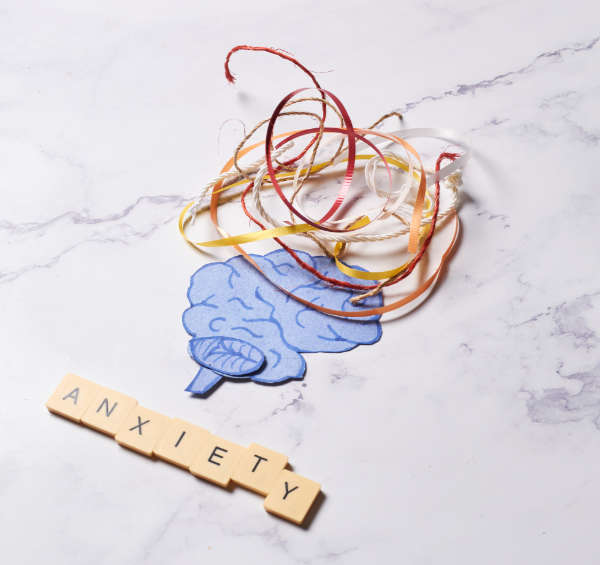Using medical marijuana as a treatment for anxiety has gained attention in recent years. While anxiety is a complex condition that can vary greatly among individuals, some studies suggest that certain components of marijuana may have potential therapeutic effects.
Potential of Medical Marijuana for Anxiety Treatment
Anxiety disorders are characterized by excessive and persistent worry, fear, and apprehension. They can significantly impact a person’s daily life, affecting their emotional well-being and overall quality of life. Traditional treatments for anxiety often involve medications such as selective serotonin reuptake inhibitors (SSRIs) or cognitive-behavioral therapy (CBT).
However, these approaches may not be effective for everyone or may come with undesirable side effects. Medical marijuana, particularly strains high in cannabidiol (CBD) and low in tetrahydrocannabinol (THC), has shown promise in managing anxiety symptoms for some individuals. CBD is a non-psychoactive compound found in marijuana that is believed to have anti-anxiety properties. It interacts with the endocannabinoid system in the body, which plays a role in regulating stress and anxiety responses.
The potential benefits of medical marijuana for anxiety are thought to be related to its ability to promote relaxation, reduce racing thoughts, and alleviate physical symptoms associated with anxiety, such as muscle tension.
Some users have reported experiencing a calming effect and an overall reduction in anxiety levels after using medical marijuana.
However, it is important to note that the research on medical marijuana for anxiety is still in its early stages, and findings have been mixed. While some studies have shown positive effects, others have not found significant benefits or have reported potential adverse effects, such as increased anxiety or cognitive impairment.
Additionally, the optimal dosage and strain of medical marijuana for anxiety treatment are not yet well-established. Individual responses to medical marijuana can vary, and what works for one person may not work for another. It is crucial to work closely with a qualified healthcare professional or a medical marijuana specialist to determine the appropriate strain, dosage, and administration method for your specific needs.
Furthermore, it’s important to consider potential risks associated with medical marijuana use, such as dependency, impaired cognitive function, and potential interactions with other medications. Discussing these concerns with a healthcare provider is essential to ensure safe and informed decision-making.
 Navigating the Use of Medical Marijuana for Anxiety
Navigating the Use of Medical Marijuana for Anxiety
The use of medical marijuana for anxiety is often approached with caution due to the psychoactive effects of THC, the primary compound responsible for the “high” associated with marijuana. High levels of THC can potentially exacerbate anxiety symptoms in some individuals or induce feelings of paranoia and unease. For this reason, strains high in CBD and low in THC are typically recommended for anxiety treatment.
CBD is believed to counteract the psychoactive effects of THC, potentially reducing anxiety-related side effects. It interacts with receptors in the brain associated with mood regulation and anxiety, promoting a sense of calmness and relaxation.
Some research suggests that CBD may influence serotonin receptors, similar to SSRIs, which are commonly prescribed for anxiety disorders. It’s worth noting that the legality of medical marijuana varies across different regions and countries.
While some jurisdictions have legalized medical marijuana, others strictly prohibit its use. It is important to familiarize yourself with the laws and regulations in your area before considering medical marijuana as a treatment option. In addition to CBD and THC, medical marijuana contains various other compounds known as cannabinoids, terpenes, and flavonoids.
These compounds work synergistically in what is often referred to as the “entourage effect,” potentially enhancing the therapeutic benefits of medical marijuana. However, further research is needed to understand the specific roles and interactions of these compounds in anxiety treatment.
Potential Impact on Sleep and Treament For Anxiety
Apart from its potential direct effects on anxiety symptoms, medical marijuana may also have secondary benefits that contribute to overall well-being. For example, individuals with anxiety disorders often struggle with sleep disturbances, and medical marijuana’s sedative properties may help promote better sleep. Improved sleep quality can have a positive impact on anxiety levels and overall mental health.
It is important to approach the use of medical marijuana for anxiety treatment with a comprehensive and individualized approach. It should be viewed as part of a broader treatment plan that may include therapy, lifestyle modifications, and other interventions. Combining medical marijuana with therapy, such as cognitive-behavioral therapy, can provide a holistic approach to managing anxiety and addressing the underlying causes.
As with any medication or treatment, it is essential to monitor and evaluate the effects of medical marijuana on anxiety symptoms. Regular communication with healthcare professionals is crucial to ensure that the chosen treatment plan remains effective and appropriate for your unique circumstances. Adjustments to the dosage or strain may be necessary based on individual responses and any emerging research findings.
In summary, while medical marijuana shows promise as a potential treatment for anxiety, more research is needed to fully understand its effectiveness, safety, and optimal usage.
It is essential to approach the topic with an open mind while considering individual factors, such as personal medical history, existing treatments, and regional legal considerations. Consulting with healthcare professionals who are knowledgeable about medical marijuana and anxiety disorders can provide valuable guidance and support in making informed decisions about treatment options.

